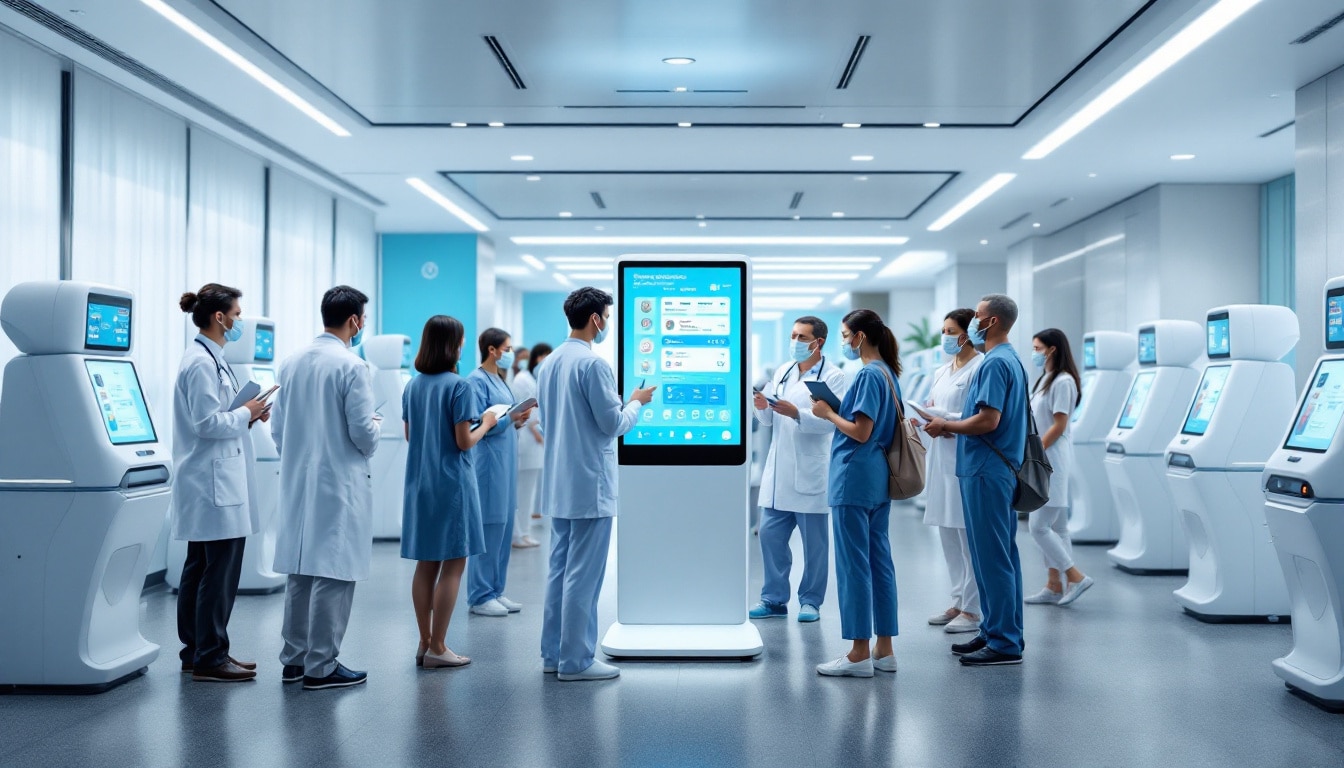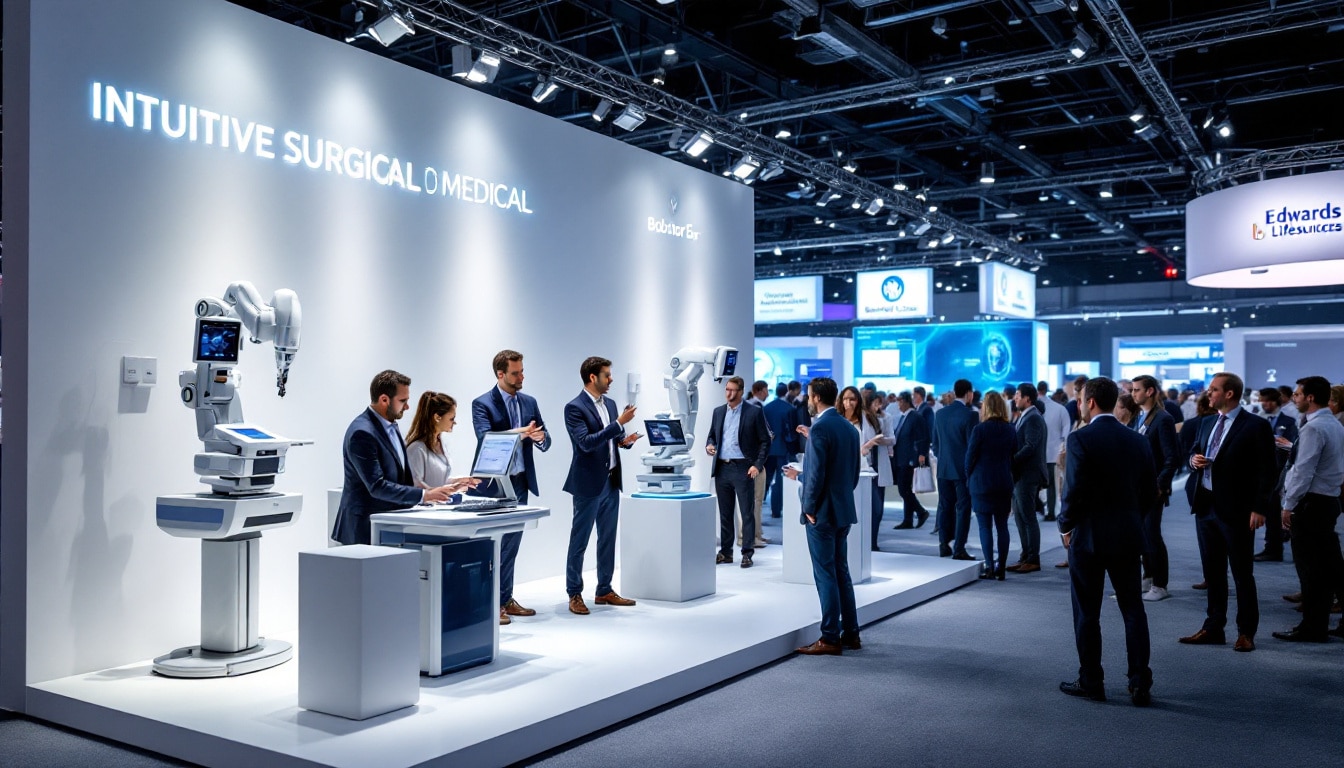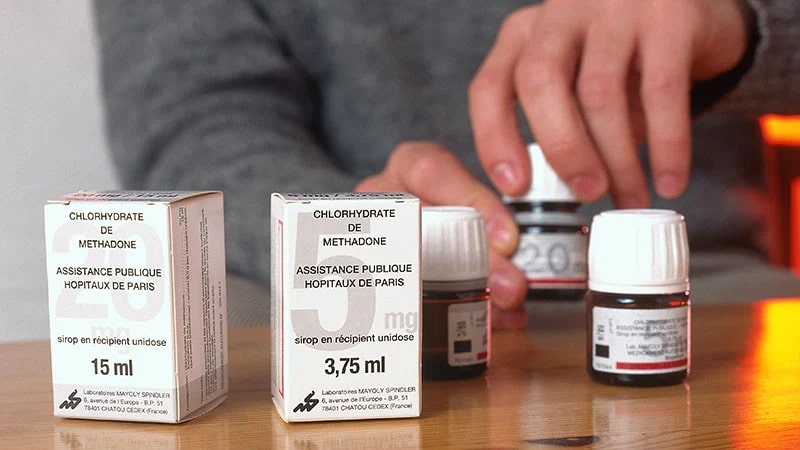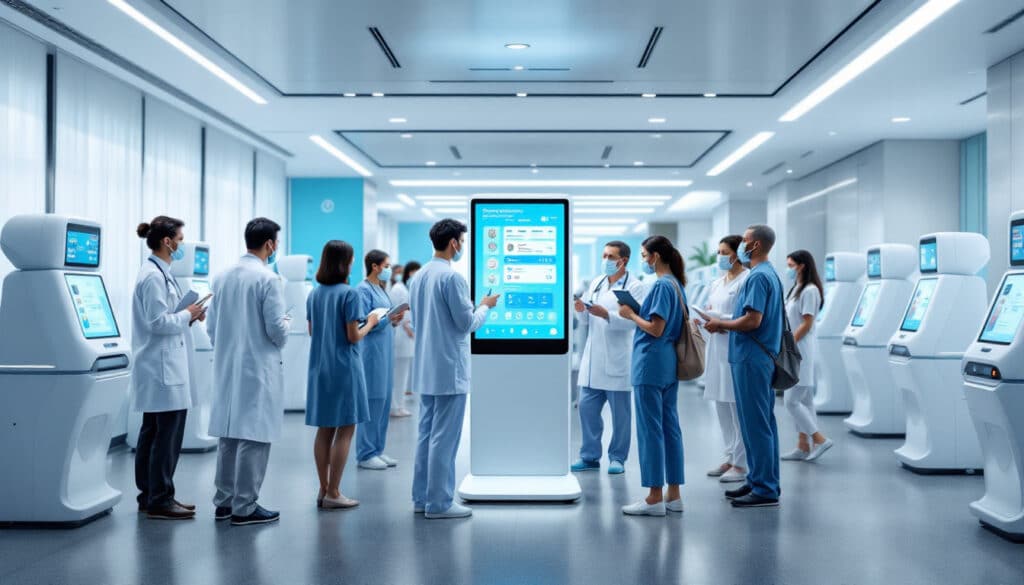Pharma Intelligence UK Limited is at the forefront of innovations in the medical sector.
Registered in England and Wales under number 13787459, it ensures rigorous compliance.
As a subsidiary of Norstella, the company benefits from internationally recognized expertise.
Committed to developing innovative solutions, Pharma Intelligence UK Limited plays a key role in the evolution of health technologies. Its platform, Citeline, provides in-depth analysis and essential data for industry professionals. The company stands out for its commitment to confidentiality and information protection. In 2025, it continues to strengthen its position through strategic initiatives and sustainable partnerships.
interview with the CEO of Intuitive Surgical
In the field of digital health, innovation is constantly driven by visionary leaders. During our recent interview with the CEO of Intuitive Surgical, he shared fascinating insights about the future of robot-assisted surgery. According to him, the collaboration between humans and machines is essential to improving surgical outcomes and reducing post-operative complications. Intuitive Surgical is investing heavily in research and development to refine its robotic systems, focusing on artificial intelligence and machine learning. This approach not only enhances the precision of interventions but also personalizes treatments according to the specific needs of each patient.
The CEO also emphasized the importance of ongoing training for surgeons to maximize the use of advanced technologies. He mentioned that the company works closely with renowned medical institutions to develop educational programs and realistic simulations. This initiative aims to ensure that healthcare professionals are well equipped to fully leverage the capabilities of surgical robots.
Speaking of collaboration, Intuitive Surgical is exploring partnerships with other players in digital health to integrate complementary solutions. For example, the company is considering collaborating with health data providers to enhance predictive analytics algorithms, thereby strengthening the ability of robots to anticipate surgical needs.
Furthermore, the CEO addressed the regulatory challenges facing the industry. He stressed the need for balanced regulation that protects patients while promoting innovation. To stay at the forefront, Intuitive Surgical actively participates in discussions with regulatory bodies, helping to shape the future standards of robotic surgery.
Finally, when discussing the global impact of Intuitive Surgical’s technologies, the CEO expressed his belief that these innovations will radically transform healthcare, making interventions less invasive and more accessible. This vision aligns with current industry trends, where the rise of digital health promises a significant improvement in the quality of life for patients.
AI alert systems in digital health
Artificial intelligence plays an increasingly crucial role in digital health, particularly through AI alert systems. These systems are designed to monitor patient data in real-time and detect anomalies before they become critical. For example, in intensive care units, an AI alert system can continuously analyze patients’ vital signs, identifying potentially dangerous trends and immediately alerting medical staff.
One of the major advantages of these systems is their ability to reduce human errors. By providing objective, real-time analyses, they complement healthcare professionals’ clinical judgment, enabling quicker and more precise interventions. Additionally, they can handle vast amounts of data, identifying patterns that the human eye might miss.
AI alert systems are also essential for managing chronic diseases. By continuously monitoring patients’ health parameters, they allow for the detection of exacerbations before they require hospitalization. This not only enhances patients’ quality of life but also reduces healthcare costs by avoiding expensive emergency interventions.
However, the integration of AI in digital health raises challenges, particularly regarding data privacy and the reliability of algorithms. It is crucial to ensure that systems are secure and that patient data is protected against unauthorized access. Moreover, it is essential to rigorously test algorithms to guarantee their accuracy and minimize false positives or negatives.
In this context, initiatives such as those presented on Global Santé explore hybrid models that combine AI with human intervention to enhance the reliability of alert systems. This approach allows for the benefits of AI while maintaining essential human oversight for final decision-making.
FDA updates on digital health
The U.S. Food and Drug Administration (FDA) plays a pivotal role in regulating innovations in digital health. Recently, the FDA published new guidelines aimed at regulating the use of connected medical devices and health apps. These guidelines are intended to ensure the safety and efficacy of technologies while facilitating their market access.
One notable update concerns the approval of several AI-based applications for the early diagnosis of chronic diseases. These applications, which use advanced algorithms to analyze complex medical data, received the green light after rigorous clinical trials demonstrating their reliability and accuracy.
The FDA also emphasizes the cybersecurity of digital health devices. With the increase in cyberattacks targeting health infrastructures, protecting patient data has become a priority. The new regulations require medical device manufacturers to implement robust security measures to prevent unauthorized access and data breaches.
Meanwhile, the FDA encourages innovation through acceleration programs for startups in digital health. These initiatives provide regulatory support and resources to help young companies navigate the complex regulatory framework, thereby accelerating the market entry of innovative solutions.
To stay informed about the latest FDA news and regulations, Global Santé provides detailed monthly summaries, offering an overview of trends and changes in the digital health sector.
new Roche NGS prototype
Roche, a global leader in biotechnology, recently unveiled its new next-generation sequencing (NGS) prototype. This prototype represents a significant advancement in digital health, offering faster and more accurate sequencing capabilities than previous technologies. Thanks to this innovation, laboratories can analyze the human genome with increased efficiency, paving the way for quicker and more personalized diagnostics.
The new Roche NGS system incorporates artificial intelligence algorithms to enhance the analysis of genomic data. These algorithms allow for the detection of genetic mutations with unmatched precision, facilitating the early detection of diseases such as cancer. Furthermore, the prototype is designed to be more accessible, reducing costs and time required for sequencing, making it particularly appealing for small and medium-sized medical facilities.
Another innovative aspect of this prototype is its ability to integrate with other digital health tools. For example, it can be connected to electronic health data management systems, allowing for seamless information synchronization and better care coordination. This interoperability is essential for creating an integrated health ecosystem where genomic data can be optimally utilized to inform clinical decisions.
Roche also plans to collaborate with other players in digital health to develop comprehensive solutions based on genomic data. These partnerships will aim to leverage the potential of data for biomedical research, thus accelerating the discovery of new treatments and personalized therapies.
To learn more about Roche’s innovations and other advancements in digital health, medtech/” target=”_blank”>Global Santé offers in-depth analyses and case studies illustrating the impact of these technologies on the medical field.
In conclusion, the landscape of digital health continues to transform rapidly due to significant advancements presented during recent discussions and industry developments. The interview with the CEO of Intuitive Surgical highlighted the growing importance of robotic surgeries, providing more precise interventions and minimizing risks for patients. This innovation reflects the sector’s commitment to integrating cutting-edge technologies to improve clinical outcomes.
Moreover, the introduction of AI-based alert systems represents a major advancement in continuous patient monitoring. These systems enable early detection of potential complications, ensuring prompt intervention and thereby enhancing safety in care. The use of artificial intelligence in this context perfectly illustrates how technology can be harnessed to provide proactive and personalized solutions in the medical field.
The FDA updates also emphasize the necessary regulatory evolution to accompany these innovations. By adapting its guidelines, the FDA facilitates the seamless integration of new technologies while ensuring their safety and efficacy. This regulatory approach is essential to maintain the trust of healthcare professionals and patients in emerging digital solutions.
Finally, the launch of the new Roche NGS prototype paves the way for significant advancements in genomics and personalized medicine. This prototype promises to accelerate diagnostics and enable more targeted treatments, thereby meeting the specific needs of each patient. Roche’s innovation exemplifies the pharmaceutical industry’s ongoing commitment to push the boundaries of medical research.
Overall, these developments illustrate a promising convergence of technology, regulation, and research, placing digital health at the heart of the medical future. The seamless integration of these elements is crucial for continuing to improve the quality of care and effectively addressing global health challenges with innovation.














